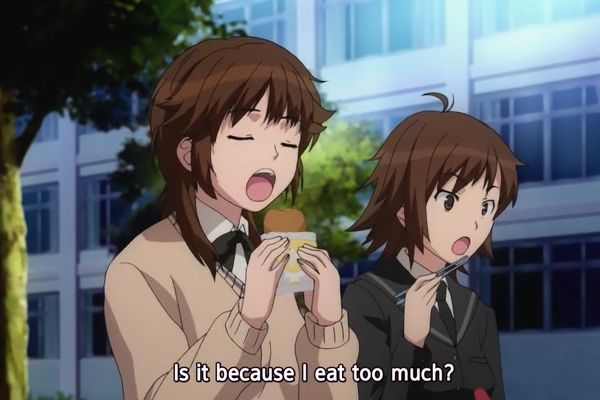No, generally speaking people in the third world are not starving because you eat too much. It is not like there is a fixed quantity of food in the world. It may have some small effect, but more on you than on them, I would say.
In most of Europe and North America, there is little connection between income and diet. People with more money to spare may eat out more at restaurants, but they generally don’t eat more and they generally don’t eat more meat than people with lower income in the same countries.
In the so-called “Third World”, on the other hand, food is a large part of living expenses. If there’s not enough money, there is not enough food. (This is a bit different for those who grow their own food, but if the crops fail, they generally don’t have much cash to tide them through until the next season.) Those who are a little better off can afford as much staple food as they want (such as rice or maize) but may only eat fruit and some vegetables when they are in season, and meat and fish only on special occasions.
As more and more people have made the move from abject poverty to lower middle class in countries such as China and India, the demand for meat especially has increased. This has put some pressure on the prices for staple foods also: Â Pigs eat much the same food as poor people, and cattle need at the very least grazing land that might have been used for growing food for humans. Where cattle ranchers can afford it, they also tend to feed their cattle some grains and vegetables for faster growth.
My point here is that there is not a fixed amount of each kind of food that you just parcel out among the world’s population. Increasing food production is pretty simple, and we do it all the time. We could easily feed 10 billion people on this planet, but it would be expensive if they were all eating meat virtually every day, as is common in America and parts of Europe.
That is not to say that we could not do it even then. The problem is not that food is too expensive: It is not expensive compared to most things. The problem is that some people are too poor.
This problem can not be turned into “some people are too rich”. There is again not a fixed amount of wealth that we can distribute. Rather, wealth is continually generated by human work and thought. The world today holds many times as much wealth as when my grandfather grew up. Not only are there several times as many people, but the average earthling is far more wealthy. This does not happen because a planet has a fixed trajectory of increasing wealth that we can simply distribute: It happens because people have had the freedom to generate wealth and the incentives to do so, the main of these incentives being “not being robbed and killed if richer than others”.
I am not opposed to rich people sharing their wealth with the poor. Far from it! That is a commendable thing to do. But even more commendable, for those who can, is to invest their wealth in such a way that it creates opportunities for the poor to use their own talents to generate even more wealth, for themselves and others. If we were to simply give all the wealth of the rich to the poor to use for food, this would like eating the seeds. Any sane farmer knows that you don’t eat the seed grain unless you are going to die anyway. We should have the same level-headed attitude to all forms of wealth.
There are some who are happy to contribute to emergency food aid to the starving poor, when drought or flooding or volcanoes have destroyed their livelihood. That is nice. But if we were more eager to contribute to schools, libraries and vaccines, there would be fewer people who were on the verge of starvation anyway. Even if there is drought in California one year, you don’t see a million Californians sitting on the ground covered in flies with a beggar bowl in their hand. Â Are Californians created in God’s image and the people in certain other places are not? Â No, but some people have currently more resources than others.
But the one most important foundation for any progress is PEACE. There is no point in building schools when they are bombed the next day, just as there is no point in planting crops that will be raided in the harvest. Once peace is broken, it is hard to put back together. I think we should all consider this. Even in the rich world, war is possible if we too readily believe in flattery at the cost of others. Before our culture wars reach the point where people start arming themselves “just in case”, we should consider that the end of this path is certainly poverty, starvation and pointless death. But if we live to be of help to others, everybody wins, including (and especially) ourselves.

